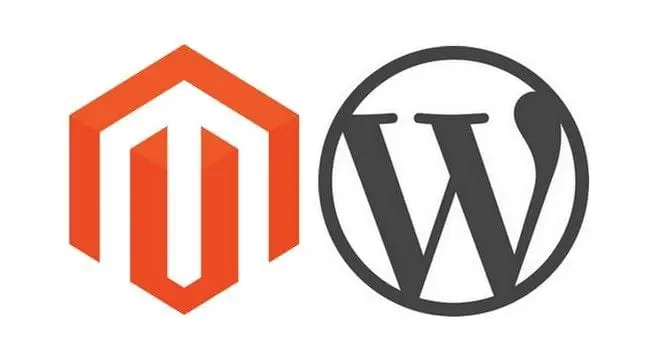Magento and Joomla are both industry-leading platforms, but which is the right choice for your eCommerce business? Here we will take a closer look and compare Magento vs Joomla and their features to help you make your decision.
About Magento
Magento is one of the leading eCommerce solutions, providing businesses of all sizes with powerful features and excellent out of the box functionality. The fact it is open source means you can download, install and modify it for free, though it can be a little tricky, so unless you have developer experience, it’s recommended you work with a Magento agency.
One of the reasons why Magento is so popular (it currently powers over 200,000 stores worldwide) is the fact it provides a scalable solution. This means you can extend your store in-line with your company’s growth so it can continue to meet your needs and requirements both now and in the future.
Some of the platform’s key features include:
- Great catalogue management
- Marketing and SEO tools
- Advanced shipping support
- Analytics and reporting tools
About Joomla
Joomla is one of the most popular content management systems, along with the likes of WordPress and Drupal. However unlike WordPress, it is known for having slightly more complex features, aimed at technical users with some development experience.
Like Magento, Joomla is free to download, install and modify and it also has a large development community. Some of its key features and benefits include:
- User-friendly administrative interface
- SEO and SEM optimised
- Mobile accessibility
- Social media support
A major difference between Magento and Joomla
Whilst Magento and Joomla share a number of similarities (they are both open source, SEO friendly and support multiple languages) there is one key difference between the two platforms and that is their primary purpose.
Whereas Magento is a fully functional eCommerce platform, Joomla is first and foremost a content management system. In order to give it eCommerce functionality, it has to be extended using shopping cart plugins like Virtuemart, Zencart and Shopify.

You will need to install a shopping cart plugin like Virtuemart in order to give Joomla eCommerce functionality.
1. Ease of use
If you are looking for a basic eCommerce platform that will allow you to set up shop almost immediately, neither Magento nor Joomla will be the right platform for you. Whilst the platforms are relatively straightforward to download and install, both require technical knowledge in order to customise and extend them.
2. Features
We have already mentioned that Magento and Joomla were designed for different purposes, so out of the box they have completely different features. Whilst Magento focuses on offering great catalogue management, advanced shipping support, analytics and reporting tools, marketing tools and SEO friendly features, Joomla offers fantastic document management and file sharing features.
As we said before, you can extend Joomla to give it eCommerce functionality using a plugin like Virtuemart. This will give you all of the basic tools you need to run a fully functional online store; however the features will not be as advanced as those of Magento.
3. Cost
Both Magento and Joomla can be extended using plugins and extensions created by developers in the community. Some of these extensions are offered for free, whereas others require payment. Many web developers also create bespoke extensions for Magento and Joomla to give eCommerce stores unique functionality.
Magento is a fairly complex platform to develop, therefore making themes and extensions fairly expensive. There are free alternatives available from the Magento Connect store, however if you require bespoke customisations, you need to prepare to pay significantly more. The high development costs and advanced features make Magento better suited to medium and large businesses with good financial resources and a greater demand for eCommerce functionality.
Joomla is less costly to develop than Magento, which is why it may be a better solution for businesses on a smaller budget or those who want to focus mainly on delivering content to their target audience and simply sell a few products on the side. Having said that WordPress may make an even better choice if cost or ease-of-use are major concerns.

Magento is better for building large eCommerce sites, whereas Joomla can only really handle small webshops.
Joomla or Magento?
Joomla is not an eCommerce platform; however it can be integrated with a shopping cart extension in order to give it eCommerce functionality. Even still, if you are looking to build an eCommerce website you are better using Magento than Joomla. Whilst Joomla will offer you the basic functionality you require to run an online store (with the addition of a shopping cart plugin), you can do much more with your eCommerce store using Magento.
If on the other hand you only want to sell a small number of products, Joomla will do the job just fine. Using Joomla to build a website with shopping cart functionality will be much less costly and will allow you to get your store set up much quicker.
You will also benefit from being able to use Joomla’s advanced content management system to create interesting and engaging content for your target audience. Though it is important to remember that Joomla is not the most intuitive and user-friendly platform, so if you are looking for a CMS for beginners, you are better of choosing WordPress.
Video source: https://www.youtube.com/watch?v=AuH4NHTsM10
Before we leave you to decide between these two platforms, we just want to stress how important it is to consider your future business needs, as well as your current ones. Whilst your business may be starting out small (most do) if you have plans to increase your product range, sell to a larger customer base and extend your business, you have to consider that Joomla may not be the right solution for you in the future. Rather than having to migrate your eCommerce store in the future (which can be both time consuming and costly) you are better off going with Magento.
A great benefit of Magento is that it is completely scalable, so whether you are selling a hundred, a thousand or even a hundred thousand products, managing them will be no more difficult than the day you set up your store.
For more information about Magento and Joomla or for help deciding on the best eCommerce platform for your business, feel free to get in touch with our team.
Image credits: alles-shlumpf, cocoate.com and FotoDB.de

A selection of our older posts, written by various members of the team between 2015 to 2021.









0 Comments